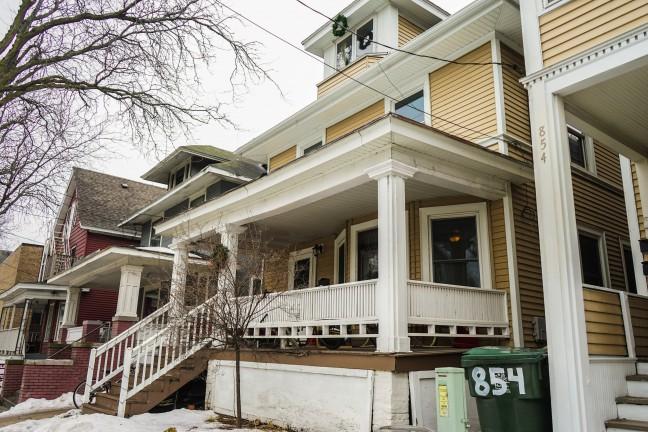The University of Wisconsin released a statement Monday that the Associated Students of Madison’s legislation to create a COVID-19 Student Relief Fund cannot legally go forward.
The legislation up for a vote in ASM Tuesday proposes a COVID-19 Student Relief Fund to aid students with housing costs such as rent and utilities. The fund would be created with money from segregated fee reserves, which would be allocated to the Tenant Resource Center to distribute to students with a prioritization on those who do not qualify for federal aid.
UW’s statement opposed the legislation on the grounds that it violates UW System Policy 820, which regulates the administration of segregated university fees. UW claims the legislation violates Policy 820 because the fees would be allocated to individual students, according to the statement.
ASM Chair Matthew Mitnick said UW’s statement was “weak” because the legislation explains why it does not conflict with Policy 820. The legislation allocates the funds to the TRC, and the Center will then distribute it based on student applicants’ needs directly to landlords and rental agencies, Mitnick said.
“[The funds are] actually never going to an individual student,” Mitnick said. “It goes to the Tenant Resource Center, and the Tenant Resource Center will administer it to landlords, housing agencies or whoever else collects rent.”
The legislation cites a section of Policy 820 that permits “admissions and registration expenses incurred by UW staff or students.” The legislation also cites a section of the policy that says segregated fees may be assessed and called by “student government.”
Mitnick said the fund would also be a permitted use of segregated fees because housing is an admissions-related expense within the mission of the student government.
“If you go into ASM’s Constitution and look at what ASM’s mission is, part of that mission is … ‘to guarantee the ability of students, staff and faculty to function without undue financial stress,’” Mitnick said.
Mitnick said the ability to allocate segregated fees through a third party unit is not specified in the 820 policy. While it would be an “unprecedented” use of segregated fee funds, Mitnick said he believes that is a strength of the legislation and within the purview of student government’s powers.
Mitnick also said other important student organizations are funded by segregated fees, including Promoting Awareness Victim Empowerment and Tuition Assistance Program. These organizations provide services that benefit students on an individual basis, Mitnick said.
In this regard, Mitnick said he believes the COVID-19 Student Relief Fund is no different.
“I think something that’s also really important is that these policies were written by predominantly white people years and years ago and are not taken into consideration with an equity lens in mind,” Mitnick said. “Our interpretation of these policies is … that we need to look at these with equity being the top priority.”
UW’s statement said the university shares the goal of assisting students in need and asked ASM to work together on identifying the most crucial unmet needs for all students.
UW has refused to listen to ASM’s argument about how the fund complies with Policy 820, Mitnick said. Specifically, Mitnick said Vice Chancellor of Student Affairs Lori Reesor and Dean of Students Christina Olstad have been “political” with the legislation, which he believes is a direct contradiction of students’ needs.
Mitnick said ASM is willing to compromise with the university, but they have to be willing to compromise, too.
“I’m very confident we’ll get this through and that we’ll make this a reality,” Mitnick said.


